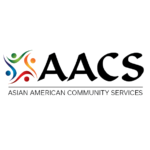
NRI PULSE STAFF REPORT: March 24, 2024
NRI PULSE STAFF REPORT
Atlanta, GA, March 24, 2024: The tragic deaths of several Indian college students across the United States this year have not only deeply shocked the community but have also raised urgent questions about how such incidents can be prevented in the future.
Former CEO of PepsiCo Indra Nooyi issued an over 10-minute long video advising Indian students coming to the US to stay safe and alert.
Nooyi urged students to respect local laws, avoid engaging in drugs or excessive drinking, and to be cautious about their social circles.
“It’s up to you to make sure you do what it takes to remain safe….stay within the law, do not venture out into dark places alone at night, do not engage in drugs or excessive drinking please. All of these are just formulae for disaster,” she said.
Nooyi also emphasized the importance of staying informed about visa status and legal boundaries, urging students to be vigilant about their actions and choices in a new environment.
According to a recent in-depth report by ABC News, although the deaths appear to be unrelated, there is growing concern about the mental health of students, particularly within the Indian community. The incidents, which occurred at different universities, encompassed a range of causes including suicides, accidental overdoses, and a brutal assault.
In response to these distressing events, there is a call for increased mental health support. Representative Raja Krishnamoorthi, an Illinois Democrat and one of the five Indian Americans serving in Congress, emphasized the need to address the stigma surrounding seeking mental health assistance, especially within communities known for high academic achievement and pressure.
“Students of Indian origin are people who are high achievers and they come from families with very high expectations,” Krishnamoorthi said in an interview with ABC News. “They not only have to deal with the stress of the high expectations … but also the stress of being in a new environment. And I would just respectfully request our families to make it less stigmatic to seek mental health support.”
“These incidents have definitely made me feel just very unsettled,” said Aarushi Raathor, vice president of communication at UIUC’s Indian Student Association, reflecting the concerns among students on campus.
The recent deaths have prompted scrutiny not only into the circumstances surrounding each incident but also into the quality of support available to students, particularly in addressing mental health challenges.
Dr. Vasudev Makhija, president of the South Asian Mental Health Initiative and Network, speaking to ABC News, highlighted the importance of parents listening to their children when they express struggles, noting instances where concerns were dismissed with simplistic solutions.
With more than 25 percent of international students in the U.S. being of Indian origin, these tragic events could potentially impact perceptions of safety and well-being among prospective students and their families.
“It’s kind of a mixed bag in some ways because there’s some prestige in U.S.-based education,” Dr. Arpana Inman, who studies mental health in the South Asian community, told ABC News. However, the intense academic and social pressures faced by students can exacerbate mental health challenges.
While universities do provide mental health resources, there are calls for greater cultural sensitivity and awareness within these services to effectively support the diverse needs of students.












